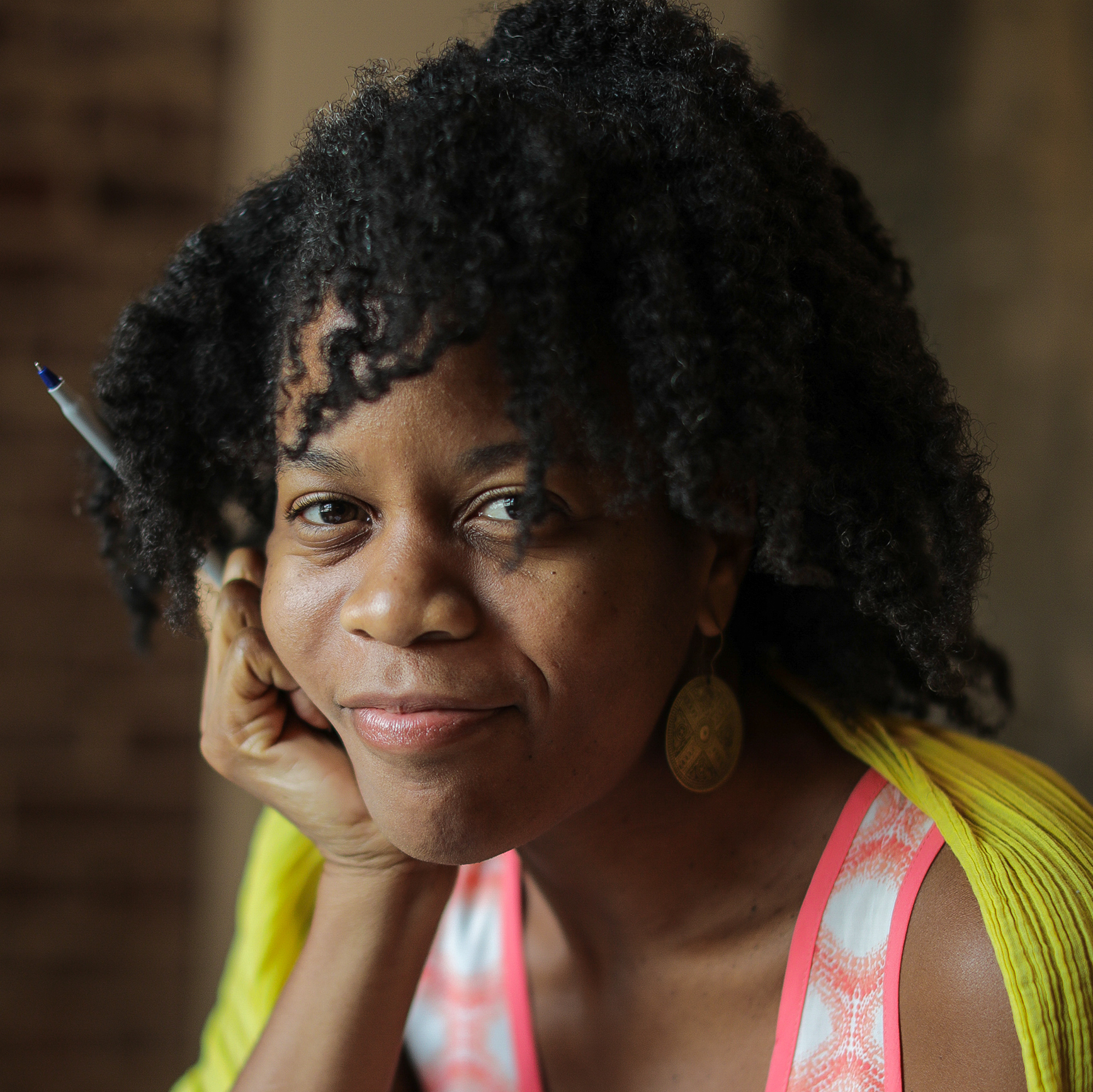By AMA CODJOE
for Betty Shabazz
Who, when they killed her husband, was carrying
twin girls—not in her arms, but in an armless
sea, with bits of blood as food. She covered
her daughters in the waters of her body.
She covered her daughters in the rooms
her body built, pressed against the wooden
floor of the Audubon Ballroom. She must have
cried, as my mother did, when she stuttered, Twins?
into the paper gown of the hospital room.
The body longs for its double. Even twins
stretch long their arms toward other strangers.
The first time I visited a mosque, I was surprised
to be separated from my father and brothers.
I sat, with the women and girls, alone.
From across the aisle, I stared at the men
longingly. As a child, I asked my preschool teacher
why I couldn’t play outside, shirtless like
the boys. It was a hot day. Before she could answer,
I relented, wearing my favorite undershirt—the one
with Archie, Betty, and Veronica—chasing
my sun-kissed brothers across the playground.
Lately, when I glimpse my nakedness in the half
mirror above the bathroom sink, I’m looking
at the photograph of Pauline Lumumba baring
her breasts as a sign of mourning. The widow’s
breasts and mine hang like four weeping eyes,
without titillation, fertility, or innocence.
I wanted to write a poem for Betty Shabazz
because her high cheekbones and luminous
eyes are like a BaKongo mask breathed
into with life. After her husband’s lifeless
body was wrapped in white linen and covered
by the words: what we place in the ground
is no more now a man—but a seed—she took
one last look at him who had smiled at her
and touched, countless times, her unveiled face.
My mother did not wear a veil on her wedding day.
Eighteen years after their divorce, my father
fidgets with the gold band she slid along his finger.
As she made a circle with her thumb and forefinger,
shimmying the ring over my father’s knuckle,
which words did her mind circle over: worse or better
death or death? That night, did my mother bunch
the hotel bedsheet in one hand like a nosegay?
Did she allow it—another white dress—to drag,
crumpled, behind her? The vows we promise
one another are veils through which we envision
the future; we enact our dreams using a vision
clouded by tulle and lace. Grief-stricken, Betty Shabazz
said of her husband’s assassination, Well, it finally
happened. Weeks prior, she had taken to wearing
her husband’s hat for comfort and continued to do so
after he died. I want a desire that could be mistaken
for grief to cloud my face, to make me shudder, to twist
my mouth into a cry. Once, I shared a bed with a man
who, as a boy, heard his parents’ lovemaking. I was
confused, he admitted, it sounded like they were in pain.
Grief is the bride of every good thing, Betty Shabazz
reminds me. I’m wearing a veil the shape of a waterfall,
which is also the shape of my mother’s dress falling
from her shoulders. Through its fabric, I can see a cloud
turning into a horse and a plane that could be a star—
a star that might be a planet. It’s hard to tell from here,
wrapped in the caul of the present, fixed on this plot
of grass, with so many seeds buried underground,
and winter—forged into a circle—threatening never to end.
Ama Codjoe is the author of Blood of the Air, winner of the eighth annual Drinking Gourd Chapbook Poetry Prize, forthcoming from Northwestern University Press. Ama has been awarded support from the Cave Canem, Jerome, Robert Rauschenberg, and Saltonstall foundations, as well as from Callaloo Creative Writing Workshop, Crosstown Arts, Hedgebrook, and the MacDowell Colony. Her recent poems have appeared in The Georgia Review, Gulf Coast Online, Adroit Journal, and elsewhere. Ama is the recipient of a 2017 Rona Jaffe Writer’s Award, The Georgia Review’s 2018 Loraine Williams Poetry Prize, and a 2019 National Endowment for the Arts Creative Writing Fellowship.




